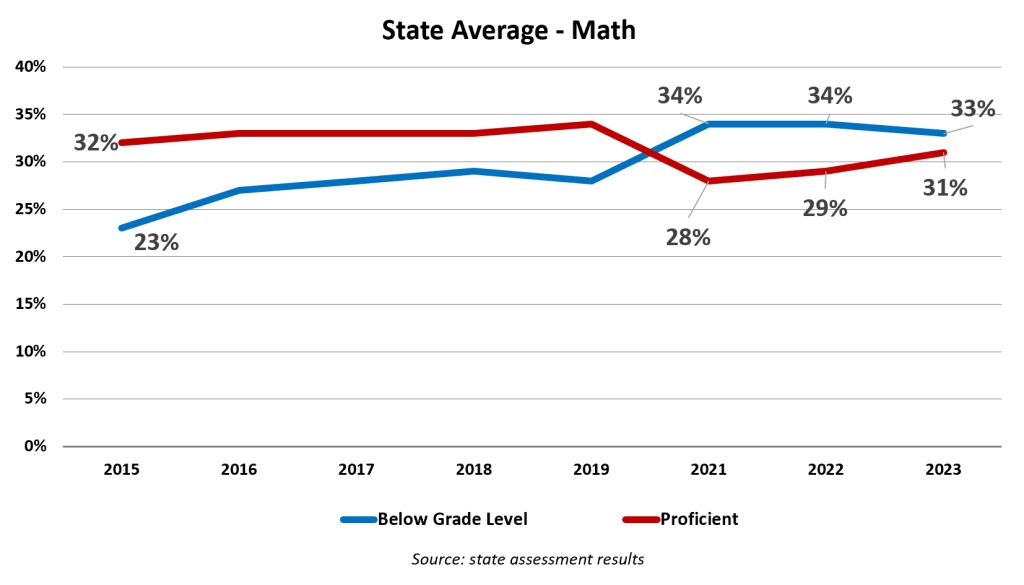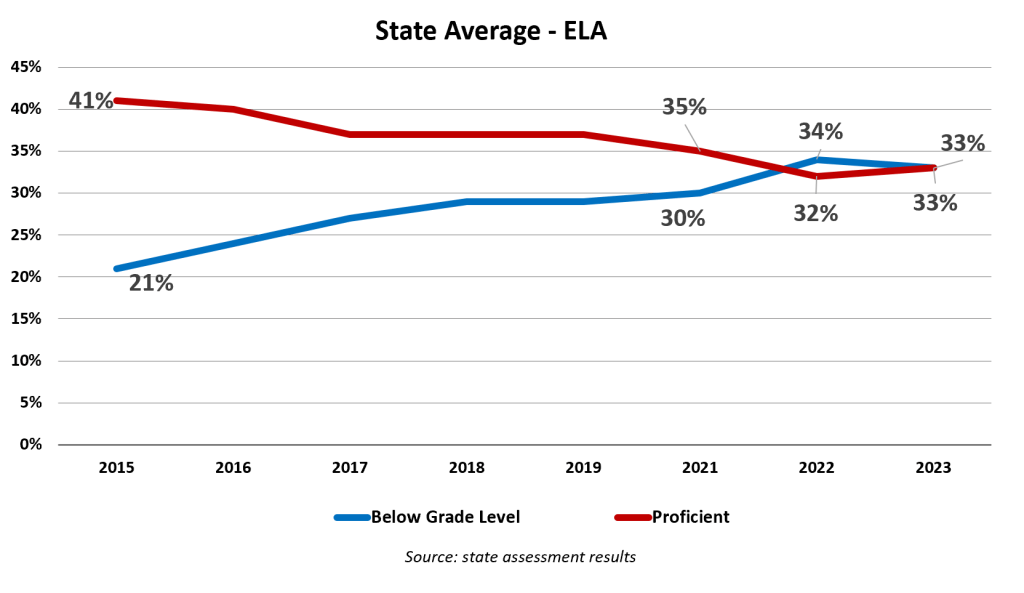Kansas Commissioner of Education Randy Watson, thinks that low test scores are cause for celebration. They say truth is stranger than fiction. But sometimes truth is spun into fiction. Take state education commissioner Randy Watson’s presentation of 2023 state assessment results at the October state board of education meeting last week. Watson gave an animated, however short, summary of the state assessment test scores which Kansas students took last spring. The commissioner imparted results that should be of serious concern and twisted them into a cause for celebration.
Watson’s brief address to the board didn’t mention a single data point. Instead, he merely compared the 2023 results to the 2022 results in terms of increase/decrease of students in Level 1 (the lowest level) and Levels 3 & 4 (those considered to be proficient) for both math and reading (English language arts – ELA). Not surprisingly, in nearly every grade level for both math and ELA, there was a decrease in the number of Level 1 students and an increase in the Levels 3 & 4 students from 2022 to 2023.
The truth of a tiny improvement in scores was spun into a fiction of success.
Here’s what he left out of the presentation:
- In math, the percentage of all students in Level 1 (below grade level) is 33%, which is higher than the those in Levels 3 & 4 combined – 31%.
- In reading, the percentages for those two groups are the same: 33%.
- For high school students, those closest to graduation, those percentages are staggering:
- Math: Below grade level, 46%; proficient, 21%
- Reading: Below grade level 36%; proficient, 27%
Those numbers are cause for celebration? They are according to Commissioner Watson. He even used the word “success” do describe the results. Apparently, in his world, absolute results don’t matter. It’s just how you compare to last year, as long as it makes the results seem better. Do these numbers constitute a tectonic shift from 2022? Not exactly. As the graphs show there was a slight improvement in scores in 2023 in both math and reading.
It’s been shown over and again that school closures had a negative impact on student achievement. However, the fact that this is the third year of testing since schools reopened, scores should increase, if by no other means, accidentally.

Watson was enthusiastic to point out that those testing in Level 4 in math is the highest since the new test was conducted in 2015. That figure: 10%

It’s hard to imagine anyone looking analytically at these numbers would conclude that a celebration is in order. In ELA, the rate of students scoring in Level 1 has actually increased and the percentage scoring in Levels 3 & 4 has decreased since testing resumed in 2021. This is a “success”? Incredibly, Watson was so excited about these numbers that he suggested the board do “some kind of dance around the capitol.” That conjures the kind of vision suitable only for the Halloween season.
In the baseball season that just concluded, the Kansas City Royals lost 106 games. Can you imagine the Royals front office staff dancing around Kauffman if they improve to a mere 105 losses next year?
Watson continues to declare that the frequency of students in Level 1 must decrease. He told the board they will “take on state assessment results in a systemic way.” He means his way to attack this problem is through the accreditation process (KESA). But in terms of state assessment results, KESA is feckless. There are no consequences for poor performance as we have learned through the number of school districts that have been deemed accredited this year by the state board.
The real truth is state assessment scores continue to be abysmal. Yes, they are infinitesimally less worse this year, but, as I said before, that should happen purely by accident. Instead of these results being treated as a cause for celebration, these should be a cause célèbre.
One wonders just how many years KSDE is allowed to blame COVID for unacceptably low scores and how long there will be a ho-hum response to low student achievement. It’s time for the Legislature to get involved and put some teeth into the consequences of state assessment results. That, of course, means tying money to performance. But don’t hold your breath or you might find yourself dancing around the capitol.





